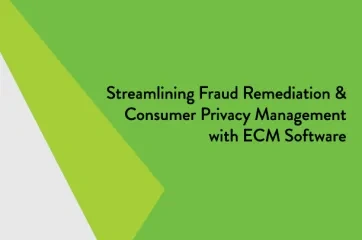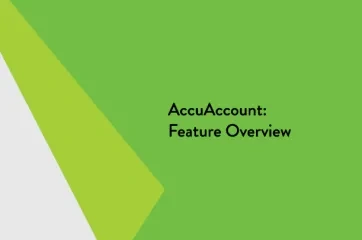Document collection software is used by financial institutions to electronically collect documents from customers and members. Document collection software could come in the form of an online portal in which loan applicants upload documents (instead of sending hard copies through the mail to the bank or credit union). Online loan application systems could also be classified as document collection software since much of the document procurement is done through the internet. Some banks and credit unions even have portals natively built into their online banking ecosystems.
What is Collected and How?
The types of documents and the mechanism for collecting them can vary, of course, depending upon the financial institution’s policies for each type of customer/member and account. In the case of an online application, the application itself is usually the first document obtained using software (without paper application forms). In the case of hard copy applications, the financial institution will collect the completed form from the customer or member, and either store it in a paper loan file or digitize it for electronic retention. Supporting documentation, such as insurance documents and financial statements, may also be collected either digitally or in hard copy format.
Document collection software—in particular, secure online document portals—can be useful for both consumer and commercial loans. For example, a customer or member who is applying for a new home construction loan may be asked to scan and upload recent bank statements to the portal (rather than mail the files to the bank or credit union). On the commercial side, a business owner may be asked to upload profit and loss statements, accounts payable documents, inventory lists, and other business documentation. Many of these documents already exist in electronic format, which is why document collection software is increasingly important for remaining competitive in today’s modern banking environment.
In short, document collection software enables faster collection with less paper, ink, postage, and wait time.
Benefits of Document Collection Software
When it comes to utilizing document collection software, everybody wins.
The customer or member experiences a much smoother process, resulting in higher levels of satisfaction. Electronically submitting documents is much easier and faster than locating hard copy files, printing them, and ensuring they make it to the post office in the required time window.
Financial institutions are happy, too, because the documents arrive within seconds of the account holder’s upload, leading to faster decision-making and, hopefully, more closed loans. As a bonus, since items are collected electronically, document management is more efficient—even after the close.
Additional Resources
Searching for more banking definitions? Check out our banking definitions page.
If you need additional information about document collection software, see our detailed resource library, which includes free document tracking spreadsheets, whitepapers, and eBooks.














